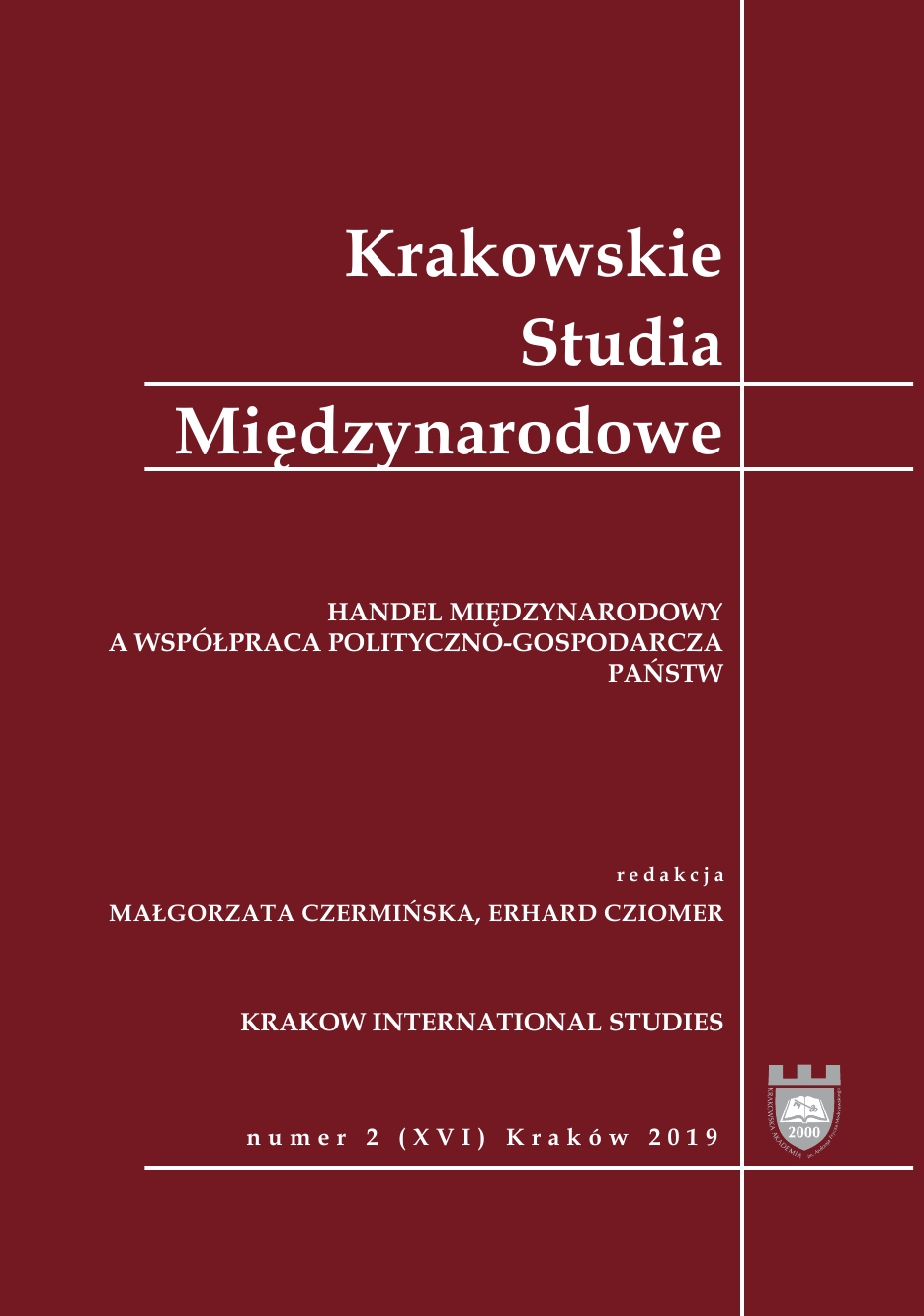Umowa o partnerstwie gospodarczym między UE a Japonią jako nowy wymiar wzajemnych relacji handlowych. Wnioski dla Polski
EU–Japan Economic Partnership Agreement as a New Dimension in Mutual Trade Relations. Conclusions for Poland
Author(s): Elżbieta MajchrowskaSubject(s): Economy, Economic policy, International relations/trade, EU-Accession / EU-DEvelopment
Published by: Oficyna Wydawnicza KA AFM
Keywords: EJEPA; EU; international trade; Japan; trade policy; RTA;
Summary/Abstract: Negotiations lasting since 2013 on EU–Japan Economic Partnership Agreement finally resulted in contract conclusion in July, 2018. It has been the fourth agreement of the new generation concluded by the EU and an Asian country within the last decade. Its goal is to create the biggest free trade area in the whole world. The elimination of both tariff and non- tariff barriers arising from the agreement may turn out to be beneficial for EU export traders including Polish ones, and may contribute to the significant activation of mutual business relations. The facts that Japan was ranked sixth in 2017 among the key EU trading partners as well as is the second main EU partner in Asia just right after China occur undoubtedly supportive here. Nevertheless, considering both parties’ huge economic potential, more intensive commercial exchange is just being expected. The provisions of the agreement are to guarantee this change. Taking into account non-EU developed countries, it is worth stressing that Japan is one of the most important trading partners for Poland. However, similarly as in the whole EU region, mutual trade flows do not show the full exploitation of the parties’ potential just because of numerous barriers. Thus, Japan is the key trading partner for Poland, especially in terms of potential increase of Polish export. It must be emphasized then that the current situation in the global trade (connected mainly with i.a. American protectionism) forces the EU to cooperate with more predictable trading partners. That is why, the contract conclusion with Japan has been acknowledged as a EU strategic priority in the field of trade policy. The parties’ potential (in total almost 30% of global GDP) makes the agreement become of utmost importance both for the parties and the world economy.
Journal: Krakowskie Studia Międzynarodowe
- Issue Year: XVI/2019
- Issue No: 2
- Page Range: 59-84
- Page Count: 26
- Language: Polish

